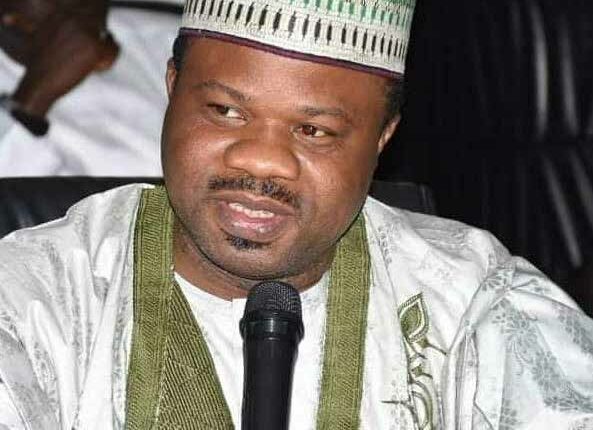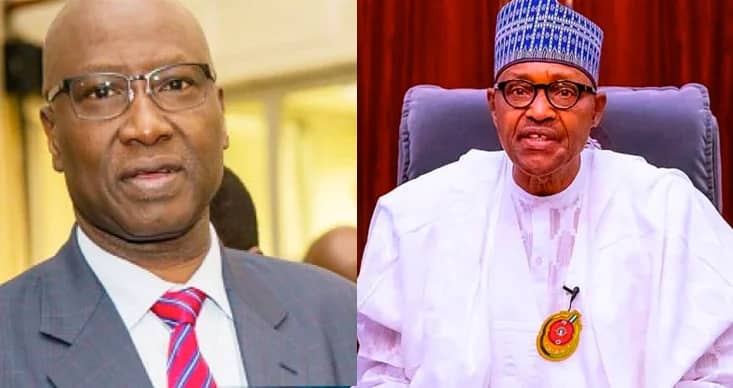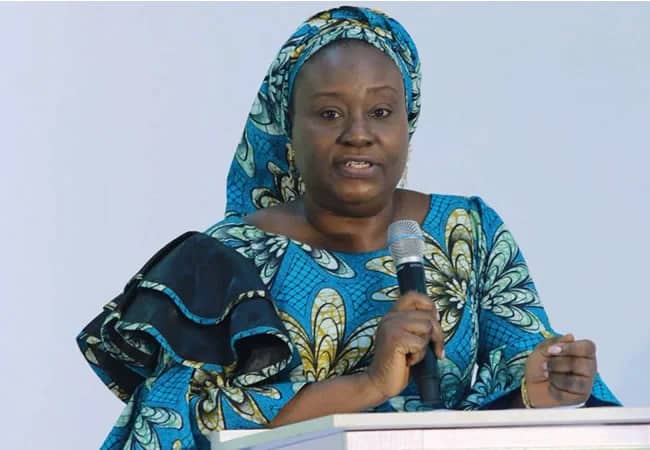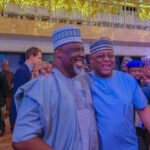By Titi Ajayi and Rosemary Nwoye
The media industry has over the years struggled to gain the prominence and recognition it deserves in the midst of other professions despite being actively involved in making kings. Worried by this concern, the Nigeria Union of Journalists (NUJ) under the leadership of Mr. Christopher Isiguzo is poised to re-writing the chequered history of media practice, addressing the problems that have inhibited its growth and fostering the welfare journalists through a solid legislative framework. He also told Phenomenal People how he ended up as a journalist instead of the lawyer he had envisaged.
Can you give us a brief background of yourself and the schools you attended?
I went to a community school. During my days there was nothing much to do with private schools, they were not in vogue. Those days, public schools were the main places to go. So I went through Ugwunchara Primary School and through Amoro Community School. I also went to Holy Ghost secondary Technical School Umuahia. I went through Ojoku High School, in Ajeromi/Ifelodun local government area of Lagos and later completed at Okigwe National Grammar School, that is in Imo state. I went through Federal Polytechnic Oko in Anambra state. And in all these, we are preparing ourselves for the challenges ahead and by God’s grace and the benevolence of people around us, we are where we are serving the Nigerian people from different areas of life, majorly those who are found within the precincts of journalism. Within this period spanning 22 years, I have practiced journalism, served at different levels of administration in the union, the chapter, the council and the zone. I was the National Vice President for six years. That was two terms of three years each. I have been a reporter because as a journalist no matter your level, you are still a reporter. In the present I am a regional Editor-in-Chief, the Bureau Chief in charge of the South East Zone of ThisDay Newspaper. I am also a publisher, the Editor-in-Chief of Daily Tracker Online.

What prompted you to joining the journalism profession?
I actually wanted to be a lawyer; I still want to be a lawyer. And I still would be a lawyer by the grace of God. It is one profession that I like so much. Lawyers and journalists have a lot in common. As a lawyer, you are expected to have an idea of virtually everything, because you might be called upon to represent the engineers, you might be called upon to represent those in the medical profession, you might be called upon to represent the media, you must be versatile, and you must have knowledge of virtually everything. That is also expected of a journalist. You need to have an idea of virtually everything. You must be reading every now and then. Same with a lawyer, you must be writing. The lawyer does the same thing. As a doctor, you don’t necessarily need to know about media. As an engineer, you don’t necessarily need to know about law. But we have journalists that are judiciary reporters. There are journalists that are in oil and gas. We have journalists that are in agriculture. We have journalists that cover every facet of human existence. The lawyer is also supposed to garner as much level of expertise as a journalist, so you can see that they have something in common. So when it did not work for me at that point, I said, Okay. The only alternative is media. Because that also gives you ample opportunity to be versatile enough to understand how the system operates.
How has the journey been?
Well, the journey has been good. It’s been rocky, it’s been awesome. It’s been an experience. Not too good an experience. We are in a new journey of life. It might be good, might be bad, it might be ugly, it might be beautiful. So if I can sum all of them up, my journey has been good, bad, ugly and beautiful.
How do you see the growth of the profession? And what impact has it made in the society?
Well, the society looks up to the journalists. At a point we have this cliché that the judiciary is the last hope of the common man. In our own environment, it does appear that the judiciary has caved in. Because of the uniqueness of our system, we have our environmental challenges that tend to stifle some form of dedicated practice. And the society now looks up to the media, because if the media also caves in in a single amount, it is ‘To your tent oh Israel.’ The democracy we enjoy today the media fought very seriously to get it. And sadly, we are described and as members of the fourth estate of the realm. We are members of the fourth estate of the realm without allocation. So, the media remains the only a estates that has no financial backing. We are left to fend for ourselves and that is the stark reality. The society looks up to us because we are supposed to give them voice. Without the media, the nation is deaf, dumb and blind. So, the media offers sight to the blind society, the media gives voice to the dumb society. So, you can see without the media, the entire system will exist in darkness. The media is the intermediary between the government and the governed. The media discharges the responsibility of defending governments and there are also times the media discharges the responsibility of defending the people. That is why the media is like the vulture. If the mother of the vulture dies, that is food. If the child of the vulture dies, it is also worth food for the vulture. If civil servants are owed now, the media talks about it, if police men are owed, the media talks about it but sadly when the media is owed, who talk about it? Nobody.
How would you rate the performance of journalists in Nigeria?
I would rate them high because practicing journalism in Nigeria is akin to making water from white stone. In Nigeria, when somebody gets employed in a media house, the breakdown of that employment is not even given. You are not properly equipped. The issue of periodic training and retraining programmes are not there. You are just expected to survive in the murky waters that are littered with sharks, crocodiles and what have you. But in the midst of these environmental peculiarities, the media is still standing tall in Nigeria. Look at the experience we’ve had in the course of this Coronavirus pandemic. As we speak a good number of journalists have lost their jobs. So many of them have been placed on half salaries. So many have been sent home to wait until the situation improves. So we appear to be the worst hit by this pandemic that started as a health challenge but nosedived into an economic challenge. And we’re going through it. We may not be the best. But compared to our contemporaries in other climes, I don’t think that we have failed. I was in Beijing, China, before the outbreak of the pandemic. And I visited the media houses in Beijing, in Sian city, in different cities in China. And by the time they told me their pay annually, you would have worked for 20 years in Nigeria to earn that. And that is if it’s available. Today, we still have journalist that receive 30,000 Naira in a month. Put it for one year that is 360,000, is it for your accommodation? Is it for your feeding? Is it for healthcare? Is it for training, taking care of your children? That is a challenge that we have. In our system, we are looking at people who earn over $100,000 in a year. If such a person comes out to demonstrate commitment, diligence to duty, would you appear anywhere? So you can see the difference. Yet in this system, we have the incessant clampdown on the media, you have harassment, intimidation, incarceration of different types, lobbying, economic incarceration, we have digital incarceration, these are all incarcerations. They come in different forms.
How do you think these challenges can be surmounted?
Well, they are not insurmountable; it is something that will not come overnight. It’s something that will take time. We will continue to interface with the operators of the Society, the system that we have in the country. I’ve always said that the challenge we have in the media industry here is more foundational, not official because when the journalist is properly equipped in terms of remuneration, training and retraining, they perform better and optimally. But if you don’t do all those necessary things, then we would continue to move at a snail pace. So we must try and strive to build a formidable platform for ourselves to continue to work at cross purposes, then the issue remains a huge challenge to us. Government must have to come to terms with the fact that the media is the only hope of the common man. The system and environment that is conducive must be built for the media.
Business owners, media owners must also appreciate the fact that a labourer is worthy of his wages.
How has it been since you mounted the saddle of the NUJ as President?
I think we have basically gone far though it’s not been easy. Ordinarily, if you go through the books, and put them side by side from a pledge of commitment that we made during the electioneering, I can say that substantially we have gone far with some of the pledges that we made. I did say that the issue of training and retraining is something that we take very seriously. And as I speak, I can tell you that a good number of journalists across the 37 councils have benefited from our training and retraining programs because we believe that in the process of getting it right, people must come to terms with the dynamics of media practice. Things are changing. It’s sad that even up till now, you see journalists that don’t know or don’t understand how to operate the computer. I wonder how you can practice journalism without being ICT compliant. Today, journalists are coming up with new ideas and that’s why we are creating platforms for them to properly equip our people. So the issue of training is important. I don’t think we have failed. We have, indeed done a whole lot in that area. The union basically relies on support from government, from organisations. And I must tell you that this is not the best of time to be where I am, because the system is so tough now. But you must have to continue to struggle, and see what can be made out of it. We have started the process of setting up media villages across the country. We have already started reaching out to Governors, for them to give us the land. We’re already interfacing with the Real Estate Developers Association of Nigeria REGAN, because the issue of accommodation remains a major challenge facing media practitioners. We have veterans that practiced and now retired and they don’t even have houses of their own. That’s what we are trying to see if we can work out. By the time we get the buy-in of governors in each state, get the land and developers, I think we would have resolved that particular issue. Of course, like I said the challenges are basically foundational and we are interfacing with some media owners and some of them are helping us already.
We’re coming up with legislation, the Journalists Enhancement Bill. Sometime in the past, that bill appeared at the National Assembly but couldn’t go beyond the second reading because we didn’t get the buy in of some stakeholders, especially the Nigeria Guild of Editors, NGE the Newspaper Proprietors Association of Nigeria, NPAN and some others. They will now effectively be part of the packaging of that Bill. That is what we were doing, before we knew it, the pandemic hit us so hard, and it’s like, starting all over again, but by God’s grace, we are still on it. By the time we package that bill, even if we don’t get it passed now, let the process be put in place. It would substantially address the problems we have in the industry. With this pandemic, it has exposed the problems more. We were able to have engagement with the NPAN, the Nigerian Guild Of Editors and of course the Federal Ministry of Information led by the Minister, Lai Mohammed. The government is also trying to get stabilization funds to cushion the effect of this pandemic. These are efforts that we have made, and I believe it is going to yield results before we know it.
How would you rate the current democratic dispensation and press freedom?
We’re advocates of press freedom. Actually, we have been canvassing for that very seriously, but the system is still not too good. So I can tell you, I’m an authority when it comes to that. In this country, I can tell you that we are still battling with that. The media cannot be free, when practitioners are not well taken taking care of. The media is still controlled by mercantile interests, because you have not effectively equipped them. Media owners have not effectively equipped the employees, so you cannot be free. We are not economically free.
What plans do you have for the welfare of journalists?
The NUJ of course, naturally is a union dedicated for the welfare of journalists. We have been talking about welfare now. If you get people to receive their salaries, get employers to pay journalists their salaries, some of these issues I have already raised constitute the sum total of welfare and welfare does not begin and end with national secretariat (of NUJ). Sadly 80% or more people who walk the street as journalists are not members of the union. They contribute nothing to the union. That is the truth. But when they have issues, they call the President. So before you talk about welfare, you must say, look at my contributions, look at what I’m doing for the union. As the President, once my salary is paid 2% is deducted. How many people are even employed to start with, let alone making contributions?
How do we improve the standard of practice and cut the spread of fake news?
Well, I recall that at a point, the government was coming up with the anti social media bills, which of course, we kicked against because we already have existing laws. We have the Criminal Codes, we have the Penal Codes, we have the cybercrime Act of 2015 dealing with fake news and the rest of them. So we don’t need to continue to re-introduce these laws. They wouldn’t help us. What the government needs to do is to activate these laws. Let them be more effective, so that it will check activities of hate speech makers and of course, fake news.
How do you unwind after a tough day?
I go home, I read, I watch cartoons, Tom and Jerry. I read books, watch discovery channel, national geographic channels. Sometimes you just have to devote time and watch animals. Sometimes animals respect order even more than a humans and that’s why the Bible said we should go to the ant and learn.
What is your motivation in life?
Service to humanity. I make sure I share what I have with others because the truth is no body lacks as a result of giving.
Parting shot
Nothing good comes easy. You must have to struggle to achieve results. Anything achieved so easily is not actually worth the while. It is the fruit that is ripe that people throw stones at. If you don’t have anything to offer, people don’t come after you. Being in the media is a battle of life; we are social crusaders, put in your best.
You can always reach us through these channels Facebook: https:/www.facebook.com/ancitymedia Instagram: https://www.instagram.com/ancitymedia Youtube Channel: https://youtube.com/@ancitymedia
Phone Numbers: 07062501185, 09038738731 E-Mail: info@ancity.com.ng, anambracity@gmail.com Copyright. This Post: Chris Isiguzo: Giving The Media A Pride Of Place was approved and published by Ancity Media Editor and may not be republished elsewhere without prior written permission from the Editor. |







